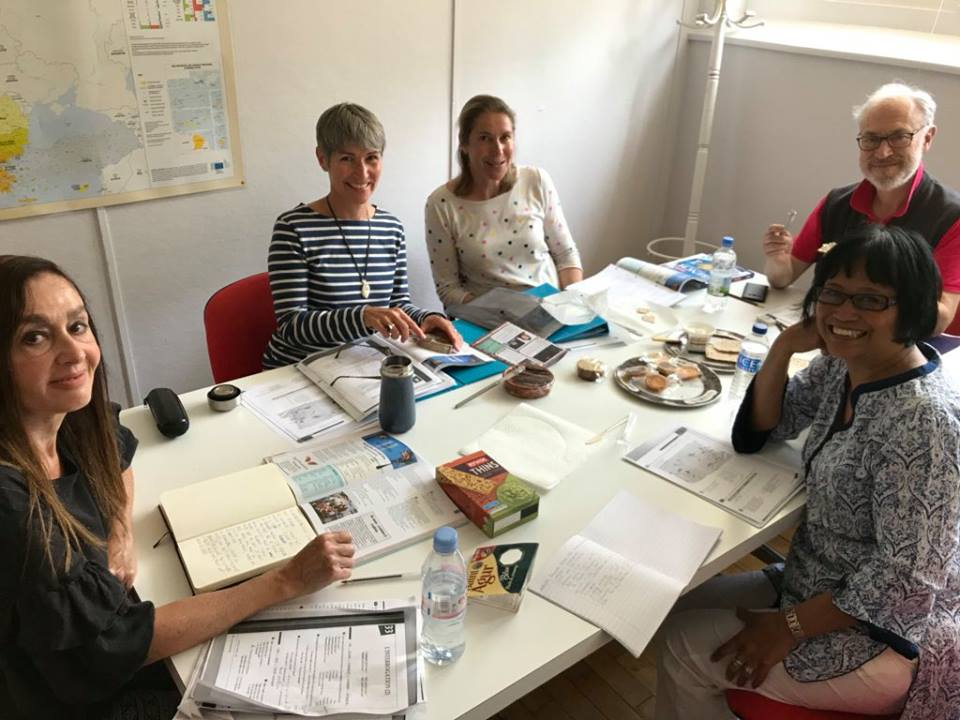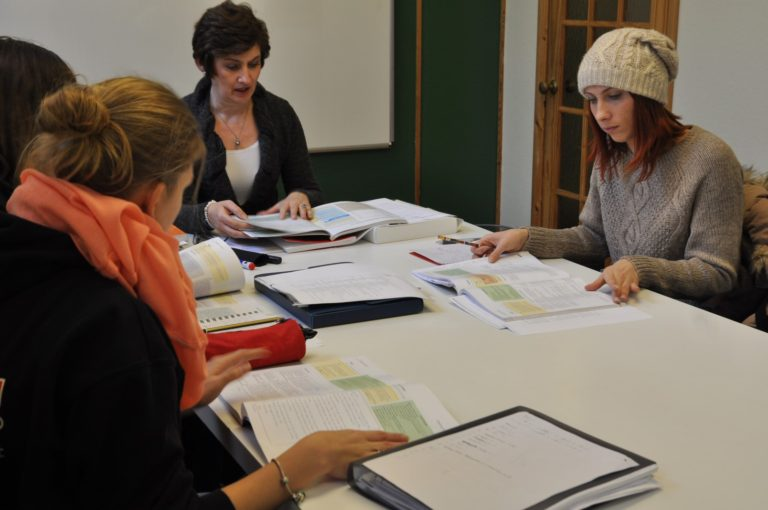Online tuition at The Marlow Language Centre
Communication is a key element of our lives, especially in these difficult times.


How proficient are you in a foreign language? The Common European Framework of Reference for Languages (CEFR) offers a handy measure.
The CEFR operates a scale of 1 to 6: proficiency levels A1, A2, B1, B2, C1 and C2.










In addition to our wide variety of bespoke private courses here at the Marlow Language Centre we also operate regular mini-group classes. Some students prefer to take tuition in a group format rather than one-to-one; there are many benefits to both kinds of tuition, and learning with other people presents a different style of language learning to private tuition. Here are our top five reasons why our group classes are so popular:

Since 1988, the Marlow Language Centre has been providing high quality foreign language tuition, as well as translation and interpreting services in over 50 foreign languages. To celebrate our 30th anniversary, we hosted a summer party at Clayton’s Marlow for students, staff and teachers past and present.

 From what we’ve learned in 28 years of teaching, these are the top ten reasons to love learning a language:
From what we’ve learned in 28 years of teaching, these are the top ten reasons to love learning a language:
It goes without saying that we’ve heard every excuse in the book in the last 28 years… and we’ve overcome every single one of them.
At the Marlow Language Centre, we come across the same reservations time and time again, but the trick to surmounting those mental blocks is to see those “reasons” for what they are – unfounded excuses that you don’t have to be guided by!
Want to know if your favourite excuse is on our list? These are the five most common reasons we hear for shying away from learning a language – and why you can’t use any of them…Learning a second language can be a smart career move, yet many  employees find themselves terrified of tackling such a challenge.
employees find themselves terrified of tackling such a challenge.
Ten things to bear in mind when you’re thinking of striking up a conversation
 Chatting to locals can be one of the most rewarding and enriching parts of travelling, giving you the chance to learn about a new culture and lifestyle and really get a feel for a different country. It can provide a wonderful mixture of practical advice and cultural insight and an experience you’ll remember for years to come.
Chatting to locals can be one of the most rewarding and enriching parts of travelling, giving you the chance to learn about a new culture and lifestyle and really get a feel for a different country. It can provide a wonderful mixture of practical advice and cultural insight and an experience you’ll remember for years to come.
Research shows that the majority of us (60%) would like to speak to locals when we travel abroad, but with only a quarter of us managing to do it, how do you strike up and hold a conversation when you’re travelling?
How to maintain motivation for your language learning in February and beyond
 Hands up if you started the year with a flurry of new year’s resolutions and career goals.
Hands up if you started the year with a flurry of new year’s resolutions and career goals.
Even for the biggest procrastinators amongst us, January 1st seems like an enticing time to start developing our skillset by setting goals like learning a second language.
The ability to order a cup of coffee when travelling abroad is undoubtedly a useful one, but supporting your child in learning a language will give them far greater benefits than just being able to get themselves a hot drink or even pass a particular exam.
The “national priority” we need to focus on for the UK to compete internationally
The British Council has called for languages to become a “national priority” in the run-up to Brexit after research shows that English youngsters are among the worst in Europe at foreign languages.
 Past studies suggest that our young people are lagging far behind their European peers, with many unable to understand more than basic words or phrases and new research confirms that two-thirds of adults (67%) surveyed said that the UK does not encourage enough young people to learn other languages and 63% said schools should dedicate more time to foreign languages.
Past studies suggest that our young people are lagging far behind their European peers, with many unable to understand more than basic words or phrases and new research confirms that two-thirds of adults (67%) surveyed said that the UK does not encourage enough young people to learn other languages and 63% said schools should dedicate more time to foreign languages.
All businesses have one thing in common – the bottom line.
The need to consider how everything the business spends will impact that bottom line is what makes the idea of training your staff to improve their language skills through distance or online training programmes so enticing.
A funny thing happens when you meet somebody face to face – your brain starts creating sensory-rich memories attached to the information you’re receiving consciously.
A large proportion of the information we absorb from direct interaction isn’t from the words we hear, but nuances from vocal tone, pacing, facial expressions and body language which is why, no matter how far or fast technology moves, the need for human interaction is fundamental.